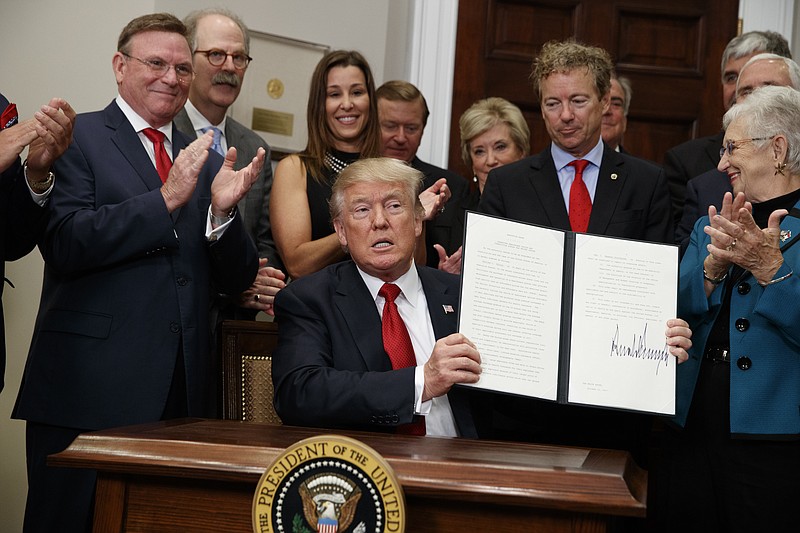While President Donald Trump made a proper constitutional calculation Thursday by ending the Affordable Care Act's so-called "cost sharing reductions," time will tell if his move was the proper political calculation.
Government payments to insurance companies to reduce premiums for lower-income enrollees in the health care program have never been appropriated by Congress, and a United States district judge said in 2016 that "no public money can be spent without [an appropriation]."
Despite the lack of an appropriation from Congress, former President Barack Obama nevertheless ordered the payments made, and Trump continued to do so while an appropriate replacement for the health care law was negotiated. But since that was not forthcoming, he decided to pull the plug.
Critics have railed for years that the Affordable Care Act outline (enough young, healthy people would pay into the plan that it would cover the older, sicker people on the plan) was bad enough, but the government having to subsidize what was supposed to be an eminently workable, cheaper-for-lower-income-users plan made it even worse.
In fact, it could be argued the subsidies propped up the flawed program while insurers took millions of dollars in losses, were forced to raise premiums and, in the case of many companies, opted to leave the market.
With the end of subsidies, insurance premiums will have to go up in response, but the Affordable Care Act has in place other subsidies that increase with an increase in premiums.
Trump's decision, while constitutionally sound and expected to hold up under lawsuits, likely is designed to prompt further overall action on the health care law.
In the meantime, the president also signed an executive order Thursday to allow individuals and small businesses in associations to purchase health insurance across state lines. The action, the White House said, would "improve access, increase choices and lower costs for health care."
Many have been calling for such a move for years, but it's uncertain how long it will be before it can be implemented.
Trump, to be sure, told voters he was going to end the subsidies during the 2016 campaign. But it may be 2018 before he finds out if he'll have to pay a political price for doing so.
